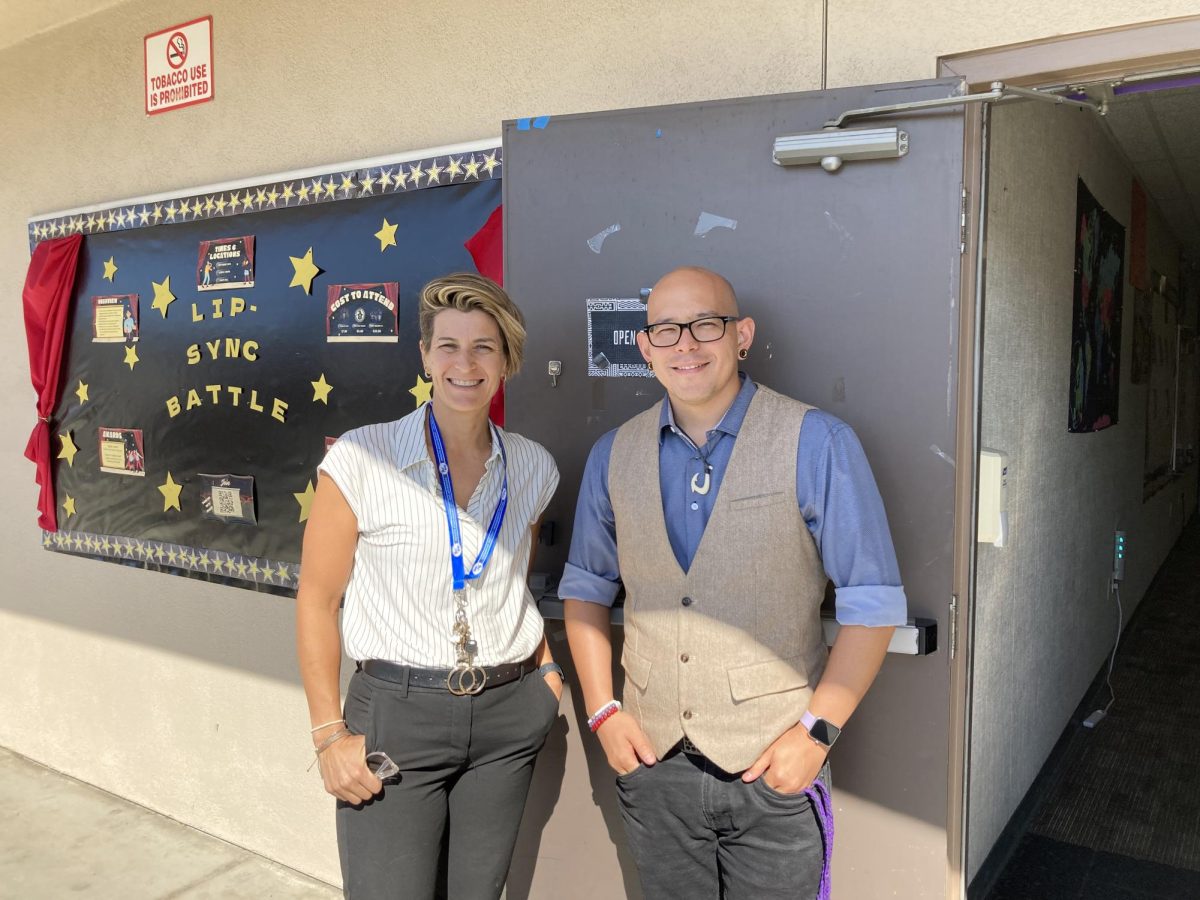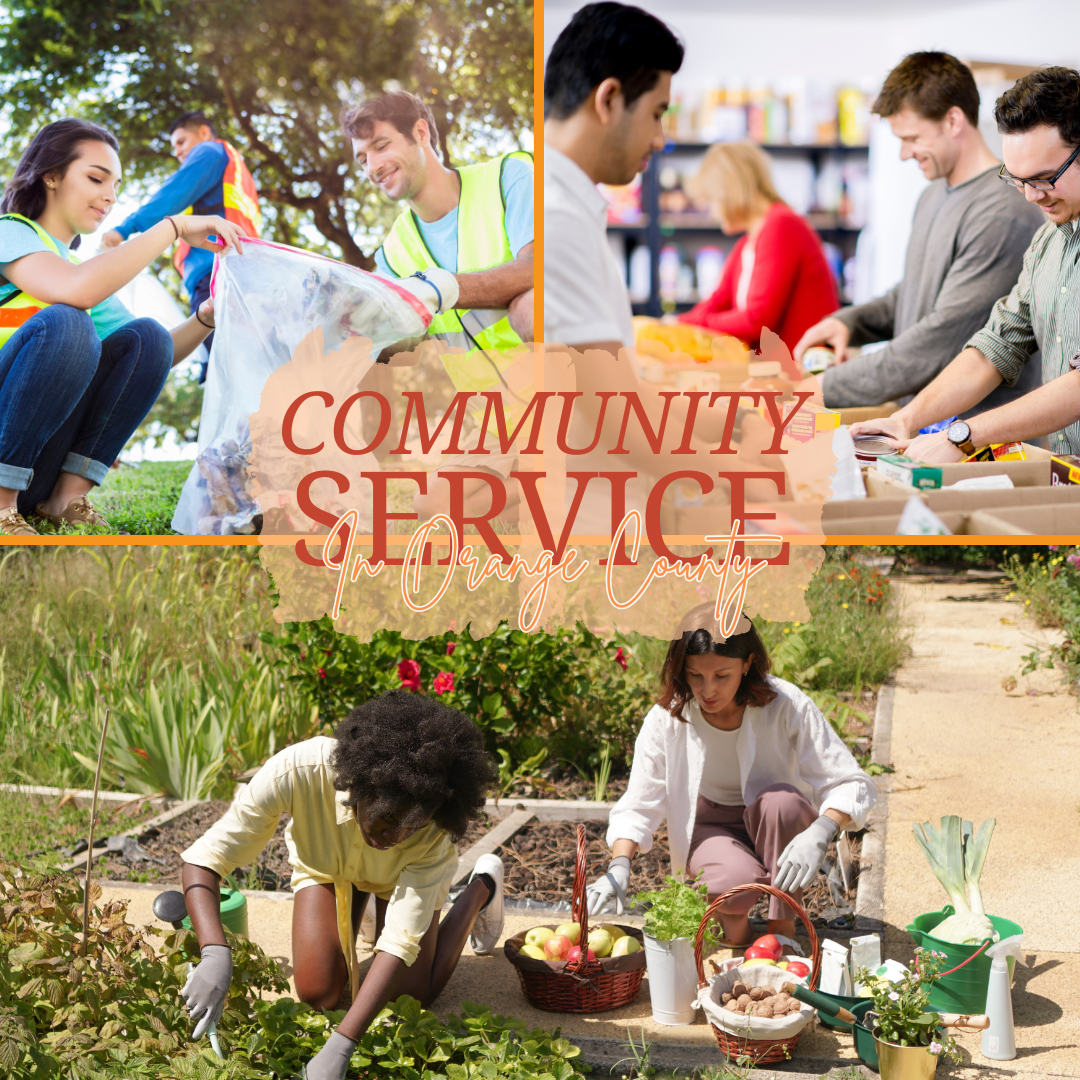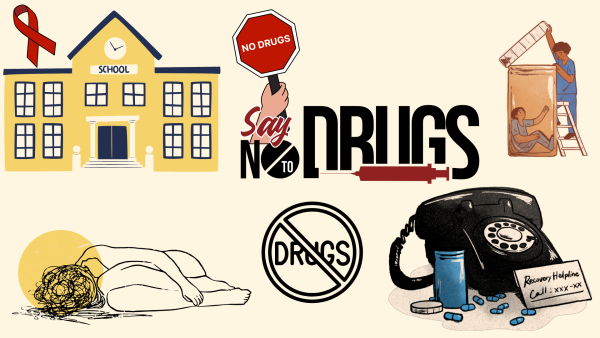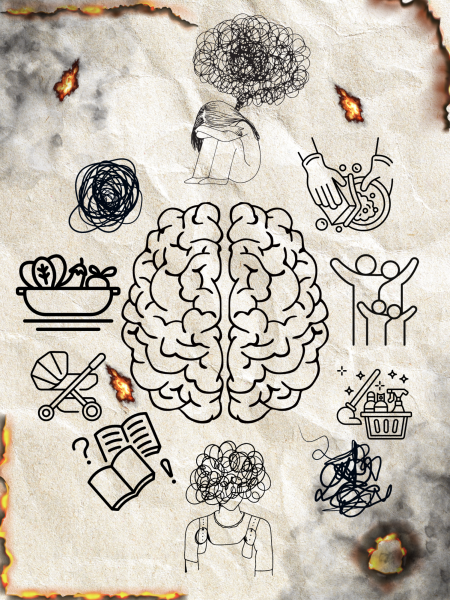Are we really getting too comfortable on this app?
A teen looks at a phone displaying an icon of someone asking a question.
There is one common response that you might be able to find in the comment section on an Instagram or TikTok post containing questions about sexual health or talking about a sexual experience.
“Y’all are getting way too comfy on this app.”
Are we using social media as a place to over-share, or are we using it as a place to find answers to questions that we don’t feel comfortable asking in real life?
According to a survey of Middle College students, 37.2% of respondents said that if they have questions about sexual health, they don’t feel like they have a place to go.
Junior Arturo Ayala said, “I don’t think there is a place I would go if I ever did have questions on sexual health.”
One of the reasons why teens feel that they don’t have a place to go with questions is because they do not feel comfortable discussing the subject with their parents.
AVID and science teacher Amy Holte, who teaches a unit on sexual heath education, said, “They don’t have somewhere at home to ask. I think there’s a big stigma especially in our community. I think that parents do not want to bring it up, and they do not want to talk about it.”
Ayala said, “The issue with teens feeling uncomfortable talking about sexual health is that most adults are uncomfortable talking about it as well. Sexual health is treated as taboo and a hush hush topic so by the time we actually start having questions we’ve had it ingrained in our mind that it’s an uncomfortable subject.”
Junior Dani De La Cruz stated, “I think some are uncomfortable because a lot of students grew with a negative view or stigmatized view of sexual health, as well as unhealthy standards.”
In a blog post on “Power to Decide” about social media and sexual health education, Julia Gonzalez stated, “If you don’t have a good relationship with your parents, or have austere parents, it might be quite uncomfortable, or worse, a bad decision, to talk to them about sex. Even if you have a good relationship with your parents, there are some detailed questions that feel too personal to discuss.”
Two assistant professors at the School of Nursing at the University of Pennsylvania, Robin Stevens and Bridgette Brawner, discuss the results of a survey of African-American and Latino teens. The results were discussed in the article, “Teenagers and young adults learn sexual health through social media.” by Michele W. Berger.
“It’s only correlational, but the study suggests that social media can be a tool to reach teens with accurate sexual health information that they may not be comfortable getting from their parents or elsewhere,” stated Stevens.
It is clear that many teens feel that they cannot have conversations about sexual health with parents or other adults.
It seems that social media is the place where many teens and young adults feel comfortable looking for information on the topic.
In the survey of MCHS students, 96.5% responded that they use social media, and 72.1% of respondents said that they came across posts about sexual experiences or sexual health sometimes or often on their feed.
So what about social media makes teens feel like it is a place to go for answers? According to some, the anonymous nature of the internet plays a role.
“I think that most teenagers do feel more comfortable posting about this because there’s a sense of separation between you and the internet,” said Ayala.
“Maybe the anonymity about it. You’re not looking somebody in the eyes when you are asking about it,” stated Holte.
An Instagram account @sexedfiles posts anonymous questions from youth along with answers.
Another important reason that social media is becoming the place to go is because it has the ability to foster an empowering and safe space, especially for women to discuss sexuality.
According to the blog post by Gonzales, “Through comedy and shared experience, the female community gains power and brings to light topics that have felt taboo.”
This shows that discussing sexual health on social media can combat the taboo around sexuality and the stigma around female sexuality.
Of course, anyone can post on the internet, which allows for the risk of misinformation.
“To be honest, while there are actual experts on social media, there is still a chance that misinformation can spread from one post. So while I love the idea of social media being a place to ask questions, not many people really understand this topic enough, which can be easily manipulated,” stated De La Cruz.
This is an important point to consider.
However, even though the risk of misinformation is prominent we cannot deny that there are some serious advantages to the use of social media as a tool to educate about sexual health, especially if it helps teens who need answers.
Another important point that needs to be mentioned is the fear that teens who are being exposed to information about sexual health will increase the number of whom will engage in sexual activities.
Berger’s article states, “She (Stevens) also stresses that seeing advice about sexual health on social media did not increase this population’s likelihood of having sex.”
“Another argument that they have or used to have is ‘I don’t want you to encourage my kid to have sex’ and that was always a hard conversation since I think actually what we talk about doesn’t encourage quite it honestly. I think it’s just informing, which they’re gonna chose to do either way at some point, and I’d rather them to be informed to make better decisions about their health,” stated Holte.
This shows that sexual education online and in classrooms will likely not encourage teens to engage in sexual activities before they are ready.
Having accurate information about sexual health is incredibly important to teens.
“Knowledge is power. The more you know the less likely you are to make like harmful decisions to your body, so unlike what a lot of naysayers will say about sexual health, I think the more students are empowered with true facts, they are better able to make informed decisions about their bodies,” said Holte.
The information presented in this article demonstrates that social media is becoming a place where teens look for information about sexual health, and this might not be a bad thing. We may even learn from social media the things that students are not learning in the classrooms and how we can include them so teens have the information they need.

I have a level 5. Paladin Half-Elf D&D character, I’ve been to an Angels game where they got seven solo home runs but still lost, and when I’m...




































